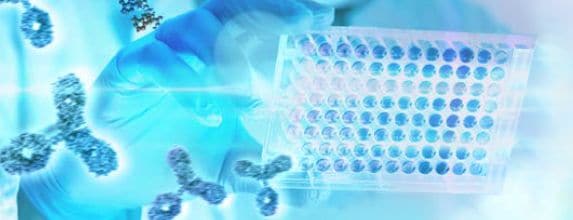Search Thermo Fisher Scientific
TSLP ELISA Kits
ELISA kits are commonly used to measure soluble biomarkers across a variety of research areas. ELISA kits for TSLP are available for Human and Mouse which can be quantified in various samples, including serum, supernatant, plasma.
Invitrogen ELISA kits exist in two formats:... ELISA kits are commonly used to measure soluble biomarkers across a variety of research areas. ELISA kits for TSLP are available for Human and Mouse which can be quantified in various samples, including serum, supernatant, plasma.
Invitrogen ELISA kits exist in two formats: Uncoated and Coated.... ELISA kits are commonly used to measure soluble biomarkers across a variety of research areas. ELISA kits for TSLP are available for Human and Mouse which can be quantified in various samples, including serum, supernatant, plasma.
Invitrogen ELISA kits exist in two formats: Uncoated and Coated. Uncoated ELISA kits include all the necessary reagents to coat your own plates and run your assay with maximum flexibility. Coated ELISA kits...
Invitrogen ELISA kits exist in two formats:... ELISA kits are commonly used to measure soluble biomarkers across a variety of research areas. ELISA kits for TSLP are available for Human and Mouse which can be quantified in various samples, including serum, supernatant, plasma.
Invitrogen ELISA kits exist in two formats: Uncoated and Coated.... ELISA kits are commonly used to measure soluble biomarkers across a variety of research areas. ELISA kits for TSLP are available for Human and Mouse which can be quantified in various samples, including serum, supernatant, plasma.
Invitrogen ELISA kits exist in two formats: Uncoated and Coated. Uncoated ELISA kits include all the necessary reagents to coat your own plates and run your assay with maximum flexibility. Coated ELISA kits...
灵敏度 3 pg/mL
测定范围 3.28-800 pg/mL
样品容量
Plasma
50 µL
Serum
50 µL
Supernatant
100 µL
总时间
4 hr 45 min
(1 hr 20 min hands-on)
价格(元)
7,510.00
货号 EHTSLP
96 Tests
- 96 Tests
- 5 x 96 Tests
- 10 x 96 Tests
灵敏度 8 pg/mL
测定范围 8-1,000 pg/mL
样品容量
Plasma
100 µL
Serum
100 µL
Supernatant
100 µL
总时间
24 hr 30 min
(1 hr 45 min hands-on)
价格(元)
6,703.00
货号 88-7497-88
10 x 96 Tests
- 10 x 96 Tests
- 20 x 96 Tests
灵敏度 8 pg/mL
测定范围 8-1,000 pg/mL
样品容量
Plasma
100 µL
Serum
100 µL
Supernatant
100 µL
总时间
24 hr 30 min
(1 hr 45 min hands-on)
价格(元)
3,346.00
货号 88-7497-22
2 x 96 Tests
- 2 x 96 Tests
- 20 x 96 Tests
- 10 x 96 Tests
灵敏度 Lot-specific
测定范围 Lot-specific
样品容量
总时间
24 hr 30 min
(1 hr 45 min hands-on)
灵敏度 1 pg/mL
测定范围 0.82-200 pg/mL
样品容量
Plasma
50 µL
Serum
50 µL
Supernatant
100 µL
总时间
4 hr 45 min
(1 hr 20 min hands-on)
价格(元)
7,435.00
货号 EMTSLP
96 Tests
- 96 Tests
- 5 x 96 Tests
- 10 x 96 Tests
灵敏度 16 pg/mL
测定范围 16-2,000 pg/mL
样品容量
Serum
100 µL
Supernatant
100 µL
总时间
24 hr 30 min
(1 hr 45 min hands-on)
价格(元)
6,703.00
货号 88-7490-88
10 x 96 Tests
2 篇参考文献
灵敏度 16 pg/mL
测定范围 16-2,000 pg/mL
样品容量
Serum
100 µL
Supernatant
100 µL
总时间
24 hr 30 min
(1 hr 45 min hands-on)
价格(元)
3,346.00
货号 88-7490-22
2 x 96 Tests
- 2 x 96 Tests
- 10 x 96 Tests
查看 7 个结果中的 7 个结果






